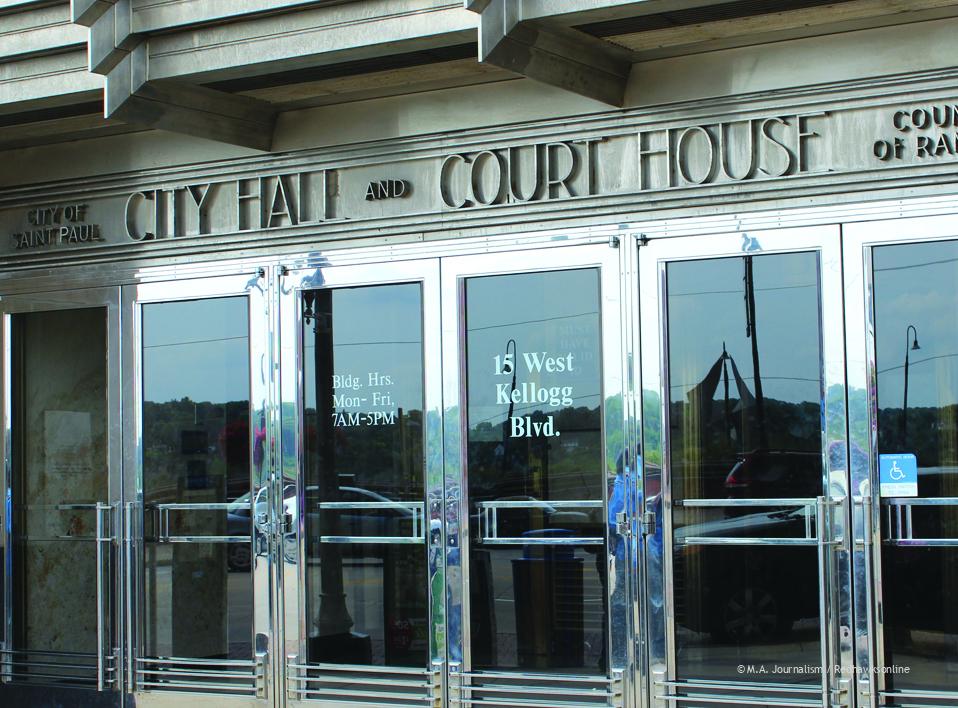There’s more to working in the law field than people would think; take a look inside the job
The sound of the door creaking open alerts the anxious people in the audience that the trial is going to begin. The prosecutor steps through a metal bar, reminding himself that he has higher power than the audience behind him. It’s up to him to convince the people before him. After the greeting to the judge, everyone is seated.
With a bang of the gavel on the desk from the law clerk, the crowd goes silent. All the work and preparation other attorneys put in behind the scenes comes into play as the prosecutor gets up to make his move.
The trial has begun.
“I went into law school not knowing exactly what I wanted to do,” Ramsey County attorney Jon Choi said. “I found myself, in terms of passion for the law, in law school.”
Many people underestimate what really happens behind court doors. Whether it be criminal, civil, family or civil commitment, each person plays their own part in the process. Some people know from the start that they’ll aim for law school, while others like Choi join law school just as random choice. But, it all started with one question: what do I want to do after high school?
“Be very aware of who you are, and what interests you, and what you’re willing to work hard at,” Ramsey County judge William Leary said. “I graduated from college with a major in English and entered secondary education because I thought I wanted to be a high school teacher.”
His path changed after realizing being a teacher wasn’t the job for him. “For the next three years I worked with juvenile offenders in Hennepin County and then I started thinking more long term with what I wanted to do so I decided to go to law school then, three years after I graduated from college.” Ultimately, Leary ended up becoming a judge in 2012, when he was appointed by Minnesota governor Jesse Ventura.
“I always thought I did particularly well in settling disputes between people and didn’t pick a particular side,” Leary said about the idea of being a judge appealing to him. “I was always fair and reasonable and that’s what I thought a judge should be.”
He works mainly with civil and criminal cases, which each take different time commitments.
“Each of the civil cases requires a lot more time and attention,” Leary said. You could get any number of types of cases [with civil law]. Civil is less repetitive, I like that.”
In the legal system, lawyers work in and out of the courtroom. Some attorneys are completely behind the scenes working civil law, child protection hearings, and civil commitment while other attorneys, as prosecutors, are mainly in the courtroom dealing with criminal law.
The main role for Choi, as county attorney for Ramsey County, is as an overseer of everything.
“My job is to think about the big picture,” Choi said. “In terms of how we do things and what decisions we make. As a county attorney, at the end of the day I’m responsible for everything. My job is to make sure that what we do is consistent with what I believe the community values to be, consistent with the law and our ethical obligations.”
Choi found himself in law school, drawn to commercial litigation, and that was the path he took to serve people later on.
“I had a feeling that with a law degree that I could make a difference and do something positive with that,” he said.
High school prepares you for anything you might want to become. Either a judge, a county attorney or a high school teacher.
“If you’re working hard, you’re being disciplined and focused and organized, that’s absolutely preparation to whatever field you’re looking for,” social studies teacher and debate coach Nathan Johnson said.
“I really liked school, I liked learning, and I liked the classroom atmosphere,” he said. “I saw teachers who were servants, who were doing things because they loved others, and that rubbed off on me.”
An example of something to stimulate an interest in law would be the debate team. “Most law work is the reading and research and the organization and writing briefs,” he said. “In that way, the research and the note taking and preparing of arguments is useful in debate. But, there’s a lot more to being a lawyer than just standing up and speaking in front of the jury.”
But one thing rings true with all of these people. They found that best thing about their jobs is ultimately having an opportunity to serve people doing something they love. For Judge Leary, the best part of his job is “trying to do the best I can with the skills that I have.”

